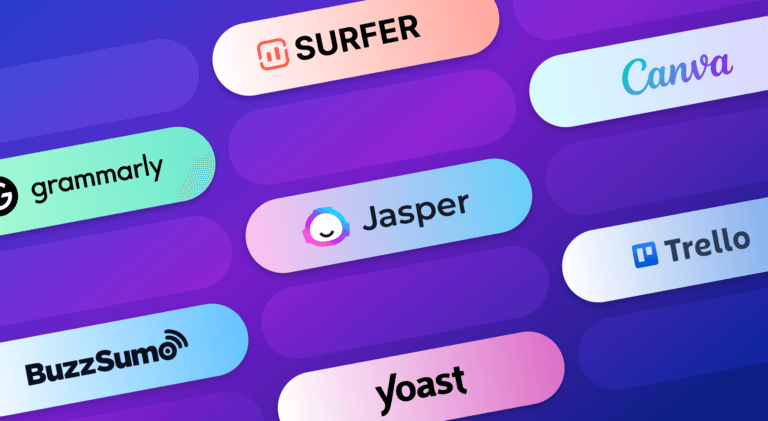
Table of Contents
- Why Are Events Important?
- 5 Key Features of Event Marketing
- What to Keep in Mind Before Marketing an Event
- Top 10 Event Marketing Tips
- Key Takeaways
- Conclusion
- FAQs
According to a Statista survey of marketers worldwide, 40% of events were predicted to be virtual in 2022, 35% of them were hybrid, and another 35% were expected to be held in person. Experienced marketers are well aware of the many advantages of hosting events. Well-planned events spread information and awareness about your brand.
They let you build relationships and generate leads. When it comes to launches, events let consumers engage with your product or service. This blog shows you how to market an event efficiently.

Why Are Events Important?
Events are a way to gather valuable feedback. This can quickly be acted upon to avoid problems at a later stage, which enhances customer satisfaction. Hosting an event also often establishes thought leadership. It indicates that the company has relevant knowledge that it is ready to share. This is reinforced if those who speak at the event are industry leaders and other established names.
Nowadays, there are many types of events that you can plan. When learning how to market an event, you need to understand its nature and purpose. In-person events include trade shows, conferences, and seminars. A popular and cost-effective option is an online event. These can be webinars, virtual summits, and online conferences. There have been many online events recently because of COVID-19 precautions. Marketers also make use of hybrid models, in which a physical event is live-streamed.
5 Key Features of Event Marketing
The purpose of event promotion ideas is to create a buzz around a company or a brand. To do this successfully, five elements should be kept in mind.
1. The right topic
It all starts with selecting the right topic for the event. This is evident when it comes to product launches. At other times, it could be a burning issue that the industry is facing, a look at the future, or a range of expert opinions. To create interest and appeal, the topic should be relevant to both the audience and the industry.
2. Choosing the speakers
With many events, the main attraction is those who will be speaking and presenting. Once the topics have been identified, potential speakers should be selected based on their knowledge and appeal. To get them on board, they should be convinced of the importance of the event, the target audience, and how their thoughts can reach the right people.
3. Participants
Successful events attract numerous participants. Depending on the nature of the event, these could be end-users, influencers, and even experts in the industry. Your communication should persuade them of the importance of the event and how they can benefit by attending it.
4. The appropriate venue
The location also plays a role in successful in-person events. This should be easily accessible, to begin with. The venue should be large enough to accommodate the participants with comfort. It should also have the right seating, screening, and broadcasting facilities. Sometimes, if an event lasts for a few days, a popular tourist destination is an apt choice of venue.
5. Communicating the event
Communication should arouse interest and build anticipation. There should be a sense of newness, as well as a specific value, around attending the event. The subject of the event, as well as the main speakers, should be clearly mentioned. Later in this piece, we’ll cover communication elements in more detail.

What to Keep in Mind Before Marketing an Event
Hosting an event is a large undertaking. There are many aspects to this venture. All of them should be carefully considered when learning how to market an event.
To begin with, there should be a clear goal. It could be to make people aware of a product or to establish category leadership, for example. You should also try to identify a metric to measure success. This could be the number of leads generated, the number of people in attendance, or the number of pre-orders booked. It all depends on the nature of the event.
After this, you should set a specific budget. When the numbers are in place, they guide many other factors. The choice of venue or frequency of communication, for instance, becomes easier with a predetermined budget. It can be helpful to look at event marketing as having three stages: before, during, and after.
- Before the event, you have to capture attention through content marketing, spotlighting speakers, and other communication methods.
- During the event, you should make sure that the goals are being achieved, and that people are receiving the right messages. Giveaways and promotional material at the venue can reinforce this.
- After the event, videos, transcripts, and interviews can be leveraged for further content creation. Those who participated and attended the event can be sent emails and other communication to prevent the communication channel from being closed.
These three stages should be planned before the marketing campaign starts. Many marketers find it helpful to keep track of the above with project software, such as event marketing schedulers. By using these, you can conveniently establish checklists, keep tabs on timelines, and measure progress.
Event marketing best practices include making goals and objectives specific, measurable, attainable, relevant, and time-based (SMART). This has been explained in further detail in the image below.

Top 10 Event Marketing Tips
Events can be seen as a special type of promotional strategy. That’s why event marketing ideas need a special set of techniques. Here are ten powerful event marketing tips.
1. Launch an event website
A dedicated website for the event can serve as a hub of all marketing activity. It should be search engine- and device-optimized. The main focus and value proposition of the event should be clearly mentioned. Other sections should contain a list of speakers, the schedule, and aspects (such as sub-events) that attendees can look forward to. The website should allow visitors to register, seek more information, and give feedback.
Other elements of an effective website are prominent call-to-action (CTA) buttons and shareable links. In the build-up to the event, the website can be regularly refreshed with new content, such as the number of registrations and any new event features that have been planned. If the venue is somewhere far, the website can also mention links and information related to accommodation. These can be of great help to those who plan to attend.
2. Showcase the speakers
When the event has speakers who are prominent in their field, it can be a powerful draw. On the website and in other communication, their names, credentials, and photographs should be highlighted. For many prospective attendees, the chance to listen to one or many of such people is a key reason to register for the event.
In some cases, the sessions of individual speakers could be marketed separately as an incentive. Highlighting speakers also adds credibility to the event. It helps the event stand out greatly.
3. Get the speakers to promote the event
Often, those speaking at the event will have their social media followers or email lists. Such speakers should be encouraged to send out messages with links and information about their sessions.
They can mention their thoughts about the event and their suggestions of other speakers to listen to. Short messages from the speakers with their signatures can also be used as elements in an email marketing campaign.
4. Use social media to the fullest
There are several effective ways to promote an event on social media. The type of social media used will depend on the nature of the event. For example, if it is related to fashion, the emphasis should be on Instagram. To start with, choose a common hashtag across all posts, as well as other communication. Teasers, special offers, and countdowns will create anticipation.

During the event itself, Twitter and Instagram live streams will interest those who have not yet made up their mind to attend. At the event venue, the hashtag should be prominently communicated, and WiFi spots made available. Visitors should be encouraged to post about what they think of the event.
5. Conduct email marketing
Personalization and scheduling are important for email marketing in general, and the same applies to events. The target audience can be segmented in terms of interests, and separate emails sent out to capture eyeballs. A launch campaign can be followed by exclusive offers.
Follow-up emails can emphasize the exclusive nature of the event. Information about the speakers can be communicated. As the date of the event draws closer, reminders and registration requests can be amplified. After the event, it’s also important to send “thank you” messages, links to further information, and news of future events being planned.
6. Leverage influencer marketing
We’ve already spoken about how influential speakers can play a huge role in promoting events. Marketers can use other types of influencers who have a following among the target audience. They could share key features of the venue, write about how they’re looking forward to attending it, and spread the news about early-bird registrations and other offers.
During the event, they could carry out live broadcasts and post photographs on social media to create more buzz. They can also be asked to interact with media spokespersons that are independently reporting the event.
7. Create press releases
Press coverage adds credibility to and boosts the image of any event. That’s why proper press releases play a crucial role in learning how to promote an event. A press release for an event should mention the nature and type of event in the headline. The summary should mention the benefits for those who attend. The prominent speakers should also be highlighted, along with the dates, schedule, and venue. It’s also important to mention the contact details of the organizers and other key people. Some journalists could be requested to conduct separate interviews to convey the event organizer’s point of view.
8. Consider podcast promotion
Podcasts are becoming increasingly popular. Business consultant Neal Schaffer points out that in 2020, there were 700,000 podcasts in over 100 languages. The average weekly podcast listener spends over six hours listening to podcast episodes each week. Hence, podcasts can be effective marketing tools to promote events.
They offer flexibility and immediacy. Hosts of existing podcasts that are popular among the relevant audience can speak about the event. There could be a special podcast just for the event, with key people appearing on it regularly for a few episodes. During the event, there could be live podcasting sessions to bring it to the attention of many more people.
9. Create video content
Event marketing videos can generate excitement and interest before, during, and after the event. Promos and teaser video content can feature previews, location highlights, mini-interviews, and testimonials from those who have attended previous events. Videos can even be personalized, with different propositions for target audience segments.
Live video feeds during the event will keep the interest levels high. Post-event videos can be a way of communicating information to those who were unable to attend, as well as creating anticipation for future events. These videos can be posted on social media sites and streaming platforms, such as YouTube.
10. Ignite the FOMO factor
Fear of missing out (FOMO) is a technique often used by marketers. When it comes to events, it can be used in many powerful ways. FOMO messages should be planned in advance and then systematically introduced into the communication.

For example, mentioning early bird offers and the number of days left to register can be powerful motivators. Other messages can revolve around the number of seats left at the event or the possibility of regret of having missed an opportunity for learning and growth.
Key Takeaways
- Events are effective marketing tools. They create awareness about brands, build relationships, and generate leads. They can establish thought leadership.
- Trade shows, conferences, and seminars are examples of in-person events. Online events include webinars and virtual shows. In hybrid events, a physical event is live-streamed.
- Several elements should be kept in mind to create a buzz around an event. These include selecting the right topic, choosing speakers carefully, a communication strategy to attract participants, and building interest and anticipation.
- Event marketing needs a special set of techniques. These should be employed before, during, and after the event for maximum impact.
- A dedicated event website can act as a hub for all marketing activity. It should prominently feature the subject, speakers, and schedule.
- Speakers and influencers are another way of attracting attention. They can use a combination of videos, email, and social media tactics for this.
- Often, marketers use the FOMO factor to whip up interest. For this, messages can revolve around the time left to register, the number of seats available, and the valuable learning opportunities at the event.
Conclusion
A lot of thought and planning goes into conducting a memorable event. That’s why there needs to be an emphasis on event marketing too. For consumers and end-users, events offer opportunities to interact with exhibits, displays, and presentations. For an enterprise, events can disseminate information and build brand loyalty.
The best event marketing ideas combine realistic goals with a strong theme. These are aided by the right location and technology. They need to be communicated via a variety of channels and methods, always keeping the target audience’s needs in mind. When the question of how to market an event arises, these aspects should be remembered.
Companies should carefully consider their marketing objectives and then plan events that will help them achieve them. The best events are unique, and not replicas of those that have come before. They should offer clear value propositions. Importantly, they should reflect the company’s point of view and vision for the future.
FAQs
The theme, the speakers, and the proposition should be effectively communicated. The target audience should be reached through a mix of channels, including email and social media. The more the message is personalized for the recipient, the more effective it will be.
Successful promotion techniques to attract consumers include:
– Leveraging speakers and other influencers
– Highlighting the unique venue, if there is one
– Keeping the event’s theme and value proposition clear and consistent in all messaging
– Using social media effectively, with unique hashtags
– Reaching out to those who have attended similar events in the past
Some key types of events are as follows:
– Webinars
– Virtual talks and conferences
– Live-streamed events
– Physical events, such as trade shows and seminars
The five elements of event marketing are as follows:
1. Reach out to the right participants.
2. Choose an appropriate venue.
3. Maximize the number of visitors.
4. Build interest with effective communication.
5. Create relationships with participants and visitors.
Event marketing is a process by which a themed exhibit, display, or conference is developed. This is done to promote a product or service, increase awareness, and enhance in-person engagement.
3M event marketing refers to three Ms, including marketing, message, and medium. Each serves the following functions.
1. Identifying the specific market
2. Coming up with a precise and compelling message
3. Selecting the best medium to deliver the message
Latest Blogs
Explore how Google’s 2025 AI search updates triggered ranking chaos. Learn actionable strategies to adapt your SEO for AI Overviews, zero-click searches, and SERP volatility. Stay ahead now.
Learn how to rank on AI search engines like ChatGPT, Perplexity, and Gemini by optimizing your content for authority, structure, and relevance. Stay ahead in AI-driven search with this strategic guide.
Explore the best healthcare SEO services for your medical practice. Improve online visibility and effectively reach more patients in need of your services.
Get your hands on the latest news!
Similar Posts

Artificial Intelligence
5 mins read
Enhance Your Writing Efficiency: Must-Have Content Writing Tools for Marketers

Marketing
5 mins read
9 Key Strategies To Increase Twitter Reach

Marketing
6 mins read